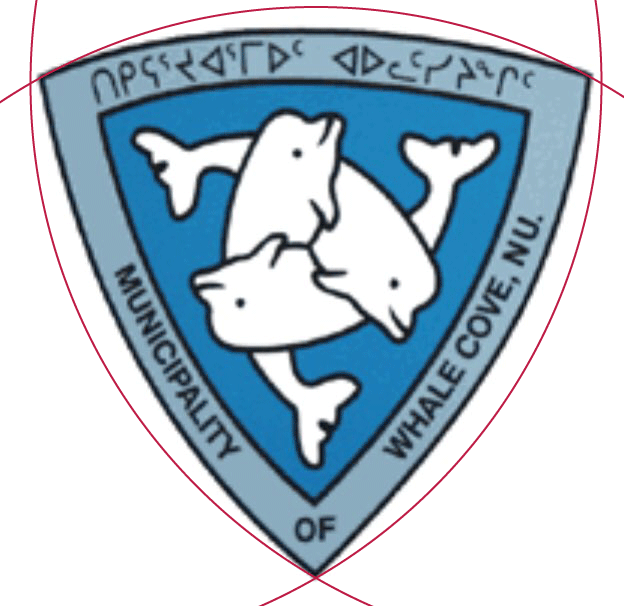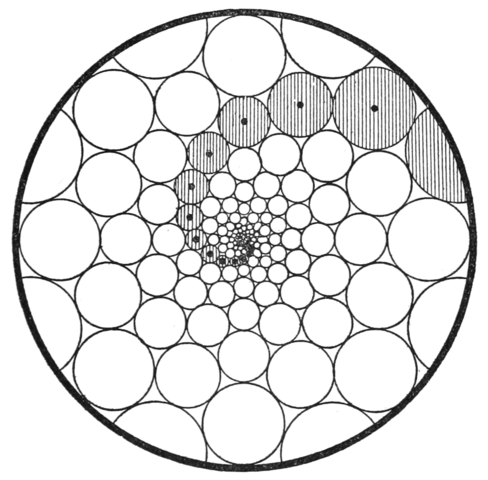Linkage
-
The five bridges puzzle (\(\mathbb{M}\)). Sort of like the bridges of Königsberg, but stochastic. A cute puzzle with a connection to percolation theory and connection games.
-
Dubious journal publisher MDPI provides special-issue editors with some number of no-publication-charge slots, but requires that priority for these slots be given to first-world scholars, because they are the ones with “more abundant scientific research resources” (read: funds to pay publication charges). This didn’t sit well with three environmental health failure researchers, who resigned their guest editorship over it (\(\mathbb{M}\), see also).
-
On today’s edition of not the Reuleaux triangle, we have the logo of Whale Cove, Nunavut (\(\mathbb{M}\), via). The sides of the triangle are straighter than a Reuleaux triangle would be, and its corners are slightly narrower than equilateral. Cool logo, though.

-
Discovering Dennis Ritchie’s lost dissertation (\(\mathbb{M}\), via). Ritchie’s doctoral committee signed off in 1968, but the Harvard Library wanted a bound copy and he was unwilling to pay the binding costs so he never officially received his Ph.D. According to the post, the thesis defines a simple model of computation characterizing primitive recursion, within which one can prove that the complexity and growth rates of primitive recursive functions are equal.
-
J.M. redraws the xkcd golden spiral in Mathematica. The thing that annoys me about it is the non-monotonic curvature, but that appears to be unavoidable.
-
Playlist of talk videos from this year’s Symposium on Theory of Computing (\(\mathbb{M}\)).
-
Video on the projective geometry of sidewalk trompe-l’oeil chalk art (\(\mathbb{M}\)), and another one with less mathematics, more flying pigs and cute space aliens.
-
Some advice I needed on how to reduce video file size (\(\mathbb{M}\)). Their suggestion of Handbrake worked well on its default settings and easily reached the file size I needed to reach, without sacrificing quality. (This was for a video of voice over still slides, so it should have been easy to compress, but iMovie couldn’t do it.)
-
The Mathematics Genealogy Project rises into the clouds (\(\mathbb{M}\)) like a phoenix from the flames of its dead former server. Or maybe not quite as poetically as that, but I use this resource daily in Wikipedia biography editing, so it’s a relief to learn that it’s back after its recent outage.
-
QCSP monsters and the demise of the Chen conjecture (\(\mathbb{M}\), talk video). In STOC’20, Zhuk and Martin show that dichotomy for constraint satisfaction gets messier for quantified CSP. Chen conjectured that QCSP problems are either in NP or PSPACE-complete, but this new paper shows that coNP-completeness can happen for 3 elements and more elements lead to even more classes. Relatedly, Zhuk just won the Presburger Award.
-
I learned while writing a Wikipedia article on Doyle spirals (\(\mathbb{M}\)) that although the pure-mathematics work in this area dates to Coxeter in 1968 and the work of Thurston and his followers in the 1980s and 1990s, the use of spiral patterns of tangent circles to model plant growth can be traced back much earlier, to Gerrit van Iterson in 1907. The image below, which I used as the lead for the article, is an illustration of phylogeny from a 1911 Popular Science story about mathematical patterns in nature.

-
This year’s London Math Soc. prizewinners (\(\mathbb{M}\), via). For some reason they keep the Louis Bachelier Prize in a separate listing. These results have already led me to add to Wikipedia brief articles on Maria Bruna (a Whitehead Prize winner) and Pauline Barrieu (Bachelier 2018).
-
A power struggle between the Georgia state university system and state government blocks Georgia Tech and other campuses from enacting any coronavirus safety rules (\(\mathbb{M}\)).